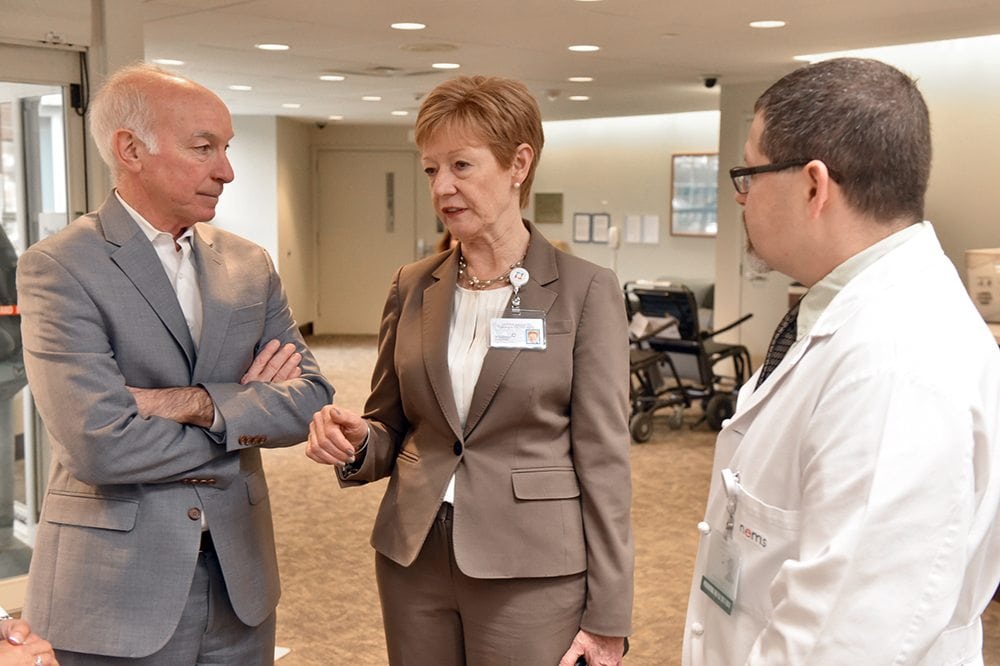Calling it “an incredible priority in eastern Connecticut,” Rep. Joe Courtney celebrated the recent five-year extension of the Medicare Dependent Hospital Program with a visit Tuesday to one of its beneficiaries, Windham Hospital.
“Rural hospitals like Windham need the extra boost,” Courtney said of the $3.8 million in annual reimbursements promised to the hospital through MDH. “In the polarized environment of Washington, (it’s amazing) that we were able to put together coalitions (in favor of MDH) in both the House and Senate.”
Courtney co-sponsored the Rural Hospital Access Act that would permanently extend the MDH program. While that has not passed, he happily discussed the extension of the program which had expired on Sept. 30, 2017. MDH provides enhanced reimbursements for small hospitals with a high percentage of Medicare patients and was developed to improve the financial stability of hospitals serving older, rural populations.
To help ensure continued MDH support, he urged the Windham leadership team gathered to meet with him to provide “the most current data possible” showing the need and the ways the hospital serves older patients with the funding.
Windham physicians and managers, led by President Donna Handley and East Region Board Chairperson Diane Wishnafski, thanked Courtney for his work on behalf of the community’s health.
“This has been a rollercoaster ride for us,” said Dr. Steve Lee, president of the hospital’s medical staff. “We’re on a good trajectory now but the MDH program is immensely critical here, helping us provide state-of-the-art care.”
When discussion turned to changes in the federal Affordable Care Act which mandates that every American have healthcare coverage, Courtney said subsidies are still “a carrot for people to enroll,” but that there are many questions that must be answered going forward.
He agreed to look into a suggestion from Dr. Gregory Shangold of the Emergency Department, that insurance companies be required to cover emergency services and then recoup the expense from the patients. Currently, Shangold said, hospitals “are forced to become bill collectors, which interrupts the patient-provider relationship.”
“People are debating getting care over paying higher copayments. We’re trying to fix that problem,” the congressman agreed.
The visit was something of a homecoming for Courtney, whose wife once worked as a pediatric nurse practitioner in local schools. He acknowledged the challenge of providing care in a rural setting like northeastern Connecticut.
“I know it’s been a bit of a bumpy ride out here, but the emotional commitment of the community to this hospital is automatic,” he said. “The best sort of advocacy is to show good results. There are good things going on out here and you can demonstrate real quality that’s being delivered.”

